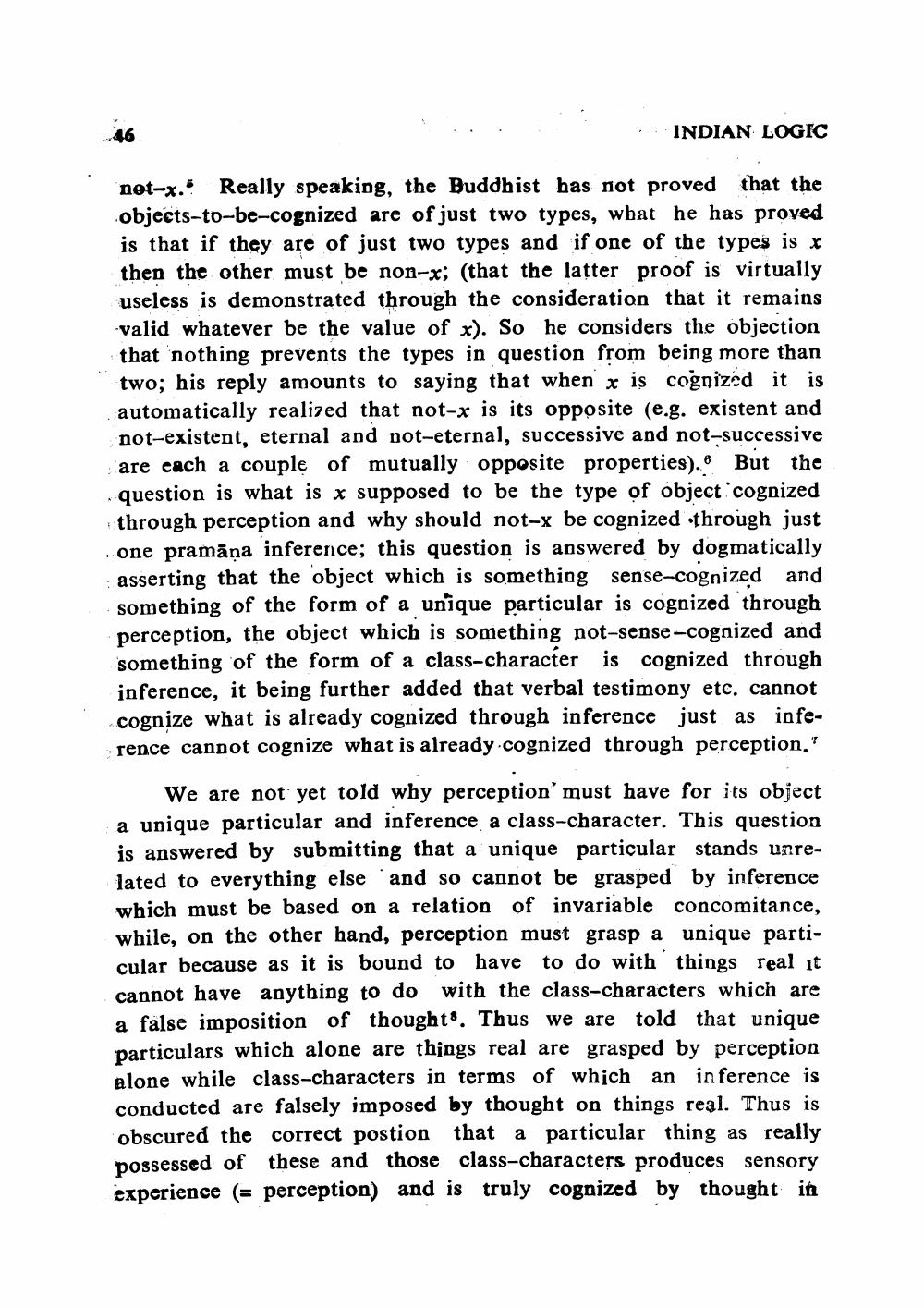________________
INDIAN LOGIC
not-x.: Really speaking, the Buddhist has not proved that the objects-to-be-cognized are of just two types, what he has proved is that if they are of just two types and if one of the types is x then the other must be non-x; (that the latter proof is virtually useless is demonstrated through the consideration that it remains -valid whatever be the value of x). So he considers the objection that nothing prevents the types in question from being more than two; his reply amounts to saying that when x is cognized it is automatically realized that not-x is its opposite (e.g. existent and not-existent, eternal and not-eternal, successive and not-successive are each a couple of mutually opposite properties). But the question is what is x supposed to be the type of object cognized through perception and why should not-x be cognized through just one pramāna inference; this question is answered by dogmatically asserting that the object which is something sense-cognized and something of the form of a unique particular is cognized through perception, the object which is something not-sense-cognized and something of the form of a class-character is cognized through inference, it being further added that verbal testimony etc. cannot cognize what is already cognized through inference just as inference cannot cognize what is already.cognized through perception."
We are not yet told why perception' must have for its object a unique particular and inference a class-character. This question is answered by submitting that a unique particular stands unrelated to everything else and so cannot be grasped by inference which must be based on a relation of invariable concomitance, while, on the other hand, perception must grasp a unique particular because as it is bound to have to do with things real it cannot have anything to do with the class-characters which are a false imposition of thoughts. Thus we are told that unique particulars which alone are things real are grasped by perception alone while class-characters in terms of which an inference is conducted are falsely imposed by thought on things real. Thus is obscured the correct postion that a particular thing as really possessed of these and those class-characters produces sensory experience (= perception) and is truly cognized by thought in




